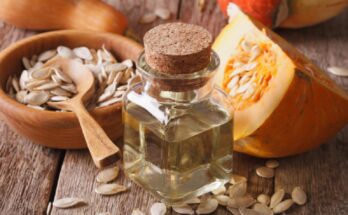Are you looking for a home remedy that will help you get rid of acne? Try neem ice cubes for acne treatment.
For someone with oily skin, acne is one of the biggest concerns they fear. I have also been dealing with acne ever since I was a teenager. Right from my cleanser to sunscreen, I made sure to use skin care products that are good for oily skin. As I started dealing with acne, I stumbled upon a lot of home remedies that would help me treat the condition. One home remedy that worked wonders for me was the one recommended by my mom! According to her, neem ice cubes can help you get rid of acne. Let’s find out what an expert has to say about neem ice cubes for acne treatment.
What is acne?
It is a common skin condition that happens when small holes in your skin called pores get clogged up. These pores are connected to hair follicles, and they release oil (sebum) to keep your skin lubricated. But sometimes, there can be build-up of too much oil or dead skin cells, which can clog the pores. This can lead to the growth of bacteria, which causes inflammation and pimples, says dermatologist and aesthetic physician Dr Sharadi Shreemoyee.

Some of the common types of acne are:
• Blackheads, which are small, open bumps that appear black.
• Whiteheads, which are small, closed bumps that look white.
• Pimples, which are red, inflamed bumps.
What are the causes of acne?
Acne is caused by a combination of factors, including hormones and genetics. If there is excess oil production, clogged hair follicles, and bacteria, you can end up with acne. Hormones play a big role, especially during puberty, as they trigger more oil production.
How can neem ice cubes help in acne treatment?
Picking or squeezing pimples can worsen the situation, causing more inflammation and scarring as well. So, use neem ice cubes for acne treatment at home.
- Neem leaves have anti-bacterial and anti-inflammatory properties, which help to fight pimple-causing bacteria. They can help reduce the swelling and redness on your face.
- As for ice cubes, their cold temperature constricts blood vessels, making pimples look smaller and reducing inflammation. They can also soothe irritated skin.
- Rubbing the ice cube is like a mini massage, boosting blood circulation and healing it faster. Also, it’s less harsh than scrubbing, which can irritate acne-prone skin.
So, neem ice cubes can be added to your anti-acne routine, says Dr Shreemoyee.
Select Topics of your interest and let us customize your feed.
How to make neem ice cubes for acne?
You can make neem ice cubes for acne by following these simple steps.
Ingredients
- Fresh neem leaves (10-15)
- Water
- Optional: Honey (1 teaspoon) or aloe vera gel (1 teaspoon)
Method
- Wash the neem leaves thoroughly.
- Blend them with some water and wait till you get a paste.
- Add honey or aloe vera (optional) for soothing the skin.
- Pour the mixture into an ice tray and freeze for at least 4 hours.
You can gently rub a neem ice cube on your cleansed face for one or two minutes, suggests the expert. Let it melt naturally then rinse with cool water and pat dry. You can use them one or two times a day, but avoid areas with broken skin or irritated skin.

What are the side effects of using neem ice cubes for acne?
While neem is generally safe, using it for acne can have some potential side effects.
1. Skin irritation
Neem can be drying and slightly harsh, so applying a neem ice cube directly can worsen this, causing redness, stinging, or dryness. Do a patch test on your jawline first to see how your skin reacts.
2. Increased sensitivity
Sun exposure after using neem can make your skin more sensitive. Apply sunscreen religiously if you use neem ice cubes, says the expert.
Always consult a doctor before using any new home remedy, especially if you have sensitive skin or pre-existing skin conditions. Start slow and be cautious while trying neem ice cubes for acne. It is a natural option but listen to your skin.
Also, keep your face clean, use gentle products, avoid touching or picking at your skin, and drink plenty of water to prevent acne. If acne persists, seeing a dermatologist will be helpful.
Source link





